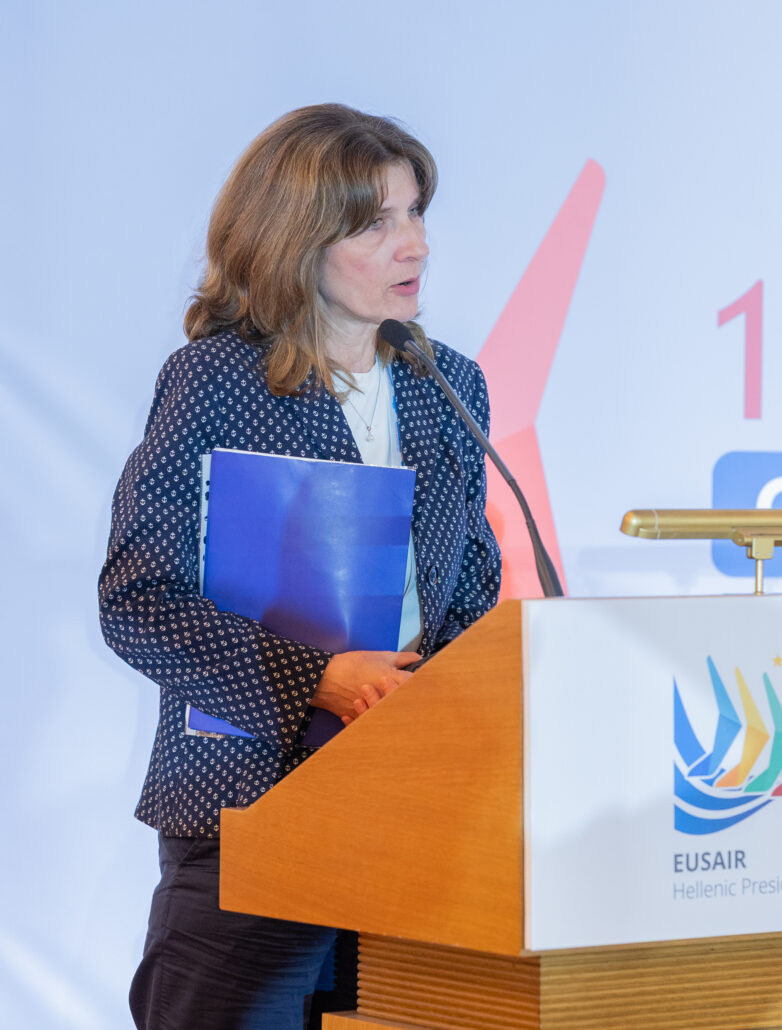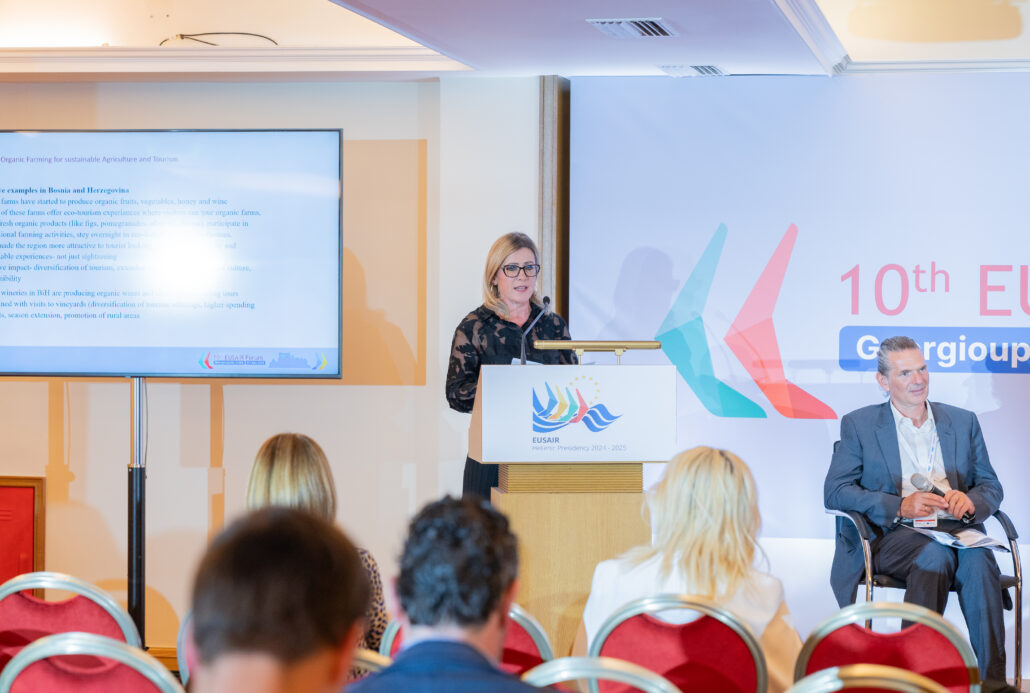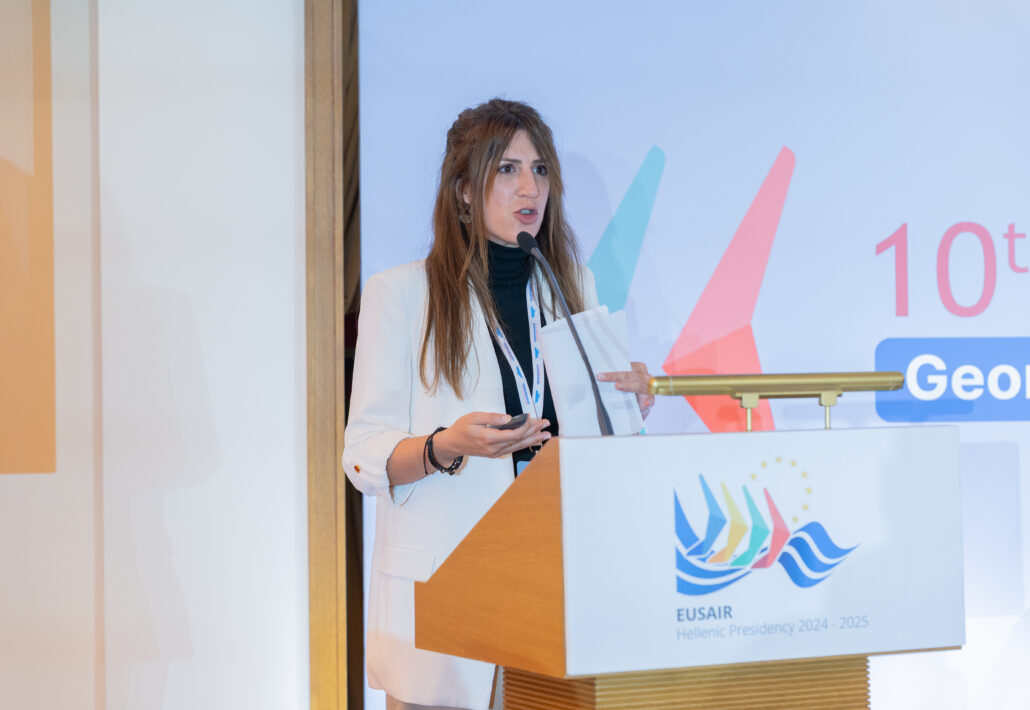10th EUSAIR Annual Forum
Crete, Greece | 6th-7th May 2025The Mediterranean diet is much more than a way of eating – it is cultural heritage, a social ritual, and a foundation for sustainable economic and tourism development. At the Pillar 4 panel of the EU Strategy for the Adriatic and Ionian Region (EUSAIR) – Sustainable Tourism, held during the 10th EUSAIR Annual Forum in Crete, participants highlighted the role of the Mediterranean diet in linking tradition, public health, and tourism.
Recognised as intangible cultural heritage by UNESCO and one of the most sustainable dietary practices according to the FAO, the Mediterranean diet is increasingly promoted through local initiatives: school meals, festivals, gastronomic offerings in hotels, and support for the private sector. Its importance has also been recognised within EUSAIR and included in the revised Action Plan of the Strategy, which is soon expected to be adopted by the European Commission. In the revised plan, the Mediterranean diet is highlighted as one of the key elements in developing sustainable tourism in the Adriatic-Ionian region.
As Dr. Eleni Papadopoulou, Head of Ephorate of Antiquities of Chania at the Greek Ministry of Culture, emphasized, protecting the Mediterranean diet also involves supporting endangered practices such as foraging for wild herbs and producing traditional homemade products like cheese. Connecting local communities and tourists through traditional food festivals is a common practice in all countries of the region, and the expanded availability of authentic products that form part of the Mediterranean diet contributes to the development of sustainable and authentic tourism. Encouraging the private sector, such as hotels and restaurants, to serve local food is part of the strategy to preserve this dietary tradition, alongside public health actions such as serving meals in schools.
Georgios Emmanouil from the Directorate-General for Regional and Urban Policy (REGIO) of the European Commission stressed the importance of including the Mediterranean diet and organic farming in the EUSAIR Action Plan.
“Promoting this way of eating and cultivation contributes, among other things, to the greening and diversification of tourism products and services,” said Emmanouil.
Participants from Bosnia and Herzegovina, Montenegro, North Macedonia, Greece and Serbia shared practical examples. Jelica Grujić from Bosnia and Herzegovina presented new trends in consumer preferences in tourism and the importance of marketing and promoting organic food, biodiversity, and a healthy ecosystem as key tools for improving visitor experience and tourism offerings.
Anthi Panagiotou from Greece spoke about culture as a bridge for regional cohesion and about connecting culture and gastronomy for sustainable development, including the importance of cross-border cooperation in the Adriatic-Ionian region.
Danijela Vićentijević from Serbia presented geographical indication labels of products as seen from a cultural heritage, social, economic, and tourism perspective.
Tamara Đukić from Montenegro emphasized the need for subsidies in the agricultural sector to support food production and presented gastro routes and traditional gastronomic events in Montenegro.
Afet Jashari from North Macedonia introduced the Old Skopje Bazaar and its historical connections and contribution to the economy, trade, and culture. It is one of the largest oriental bazaars in the Balkans, with many historical monuments.
EUSAIR Pillar 4 Coordinator, Senka Daniel from the Croatian Ministry of Tourism and Sport, summarized that the Mediterranean diet is not only a vital nutritional and public health element for quality of life in the Adriatic-Ionian region, but also a foundation for a stronger tourism offer.
"The promotion of the Mediterranean diet plays a significant role in preserving and enhancing the culture, tourism, and identity of the region as a whole. The use and promotion of the Mediterranean diet, organic products, and products of origin can foster sustainable economic growth and diversification of products and services in rural and less touristically developed areas. The promotion of local products is closely linked to sustainable tourism practices and contributes to improving economic sustainability in rural communities and reducing economic disparity between rural and urban areas," said Daniel.
She added that the implementation of concrete measures can create a model of sustainable tourism that ensures the long-term competitiveness of destinations in the Adriatic-Ionian region without the negative effects of unbalanced tourism.











